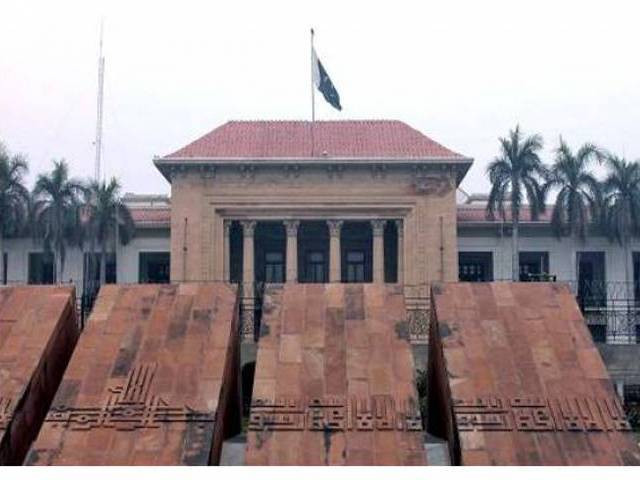Assembly rules: Opposition’s amendment proposals await deliberation
In February, the Assembly had passed 24 amendments to the Rules of Procedure

Punjab Assembly. PHOTO: APP
Rules of Procedure of the Provincial Assembly, however, several amendments proposed by the Opposition still await consideration.
The Law and Parliamentary Affairs Committee chair explains that though they had not incorporated all the amendments proposed by the Opposition, it did not mean they had discarded them. Lawmakers on the other side of the bench, however, are sceptical of this claim.
In February, the Provincial Assembly passed as many as 24 amendments to the Rules of Procedure. These include procedural details pertaining to expunction of words, consideration of bills clause by clause, and the use of assembly chambers. Amendments providing for zero hour and allowing members to move up no more than one adjournment motion during a sitting have been incorporated as well.
Among the amendments proposed by the Opposition are: provision of suo motu powers to standing committees, increasing the duration of the question hour to 90 minutes, and making it mandatory for government departments to answer parliamentary questions within 30 days of their submission.
Law and Parliamentary Affairs Committee Chair Azma Zahid Bukhari says it is true that some amendments had not been taken up while amending rules of the House in February. However, she says, they have not been discarded. “They are under consideration.”
Bukhari says the matter was taken up in a meeting chaired by the law minister in which they were assured amendment proposals from the Opposition would be addressed soon. Bukhari admits that the amendments passed focused on administrative aspects and not on performance.
Vickas Hassan Mokal of the Pakistan Muslim League-Quaid, who was also a part of the special committee reviewing the rules, says he is sceptical about the government’s intention. “The issue was taken up by the Opposition in the last meeting of the Business Advisory Committee. The members of the Opposition were told that the special committee would be revived to take up the matter again.”
He says that Treasury members were reluctant to granting suo motu powers to standing committees. “The powers the Opposition had called for aimed to grant a supervisory role for these committees.”
The demand for suo motu powers to standing committees has been one of the major proposals by the Opposition.
Leader of the Opposition in the Assembly Mian Mehmoodur Rasheed says the law minister had promised to consider their proposals. “We have been given an assurance that the proposed amendments would be taken up by the special committee after the budget session in June.”
Rasheed, who also chairs a Public Accounts Committee, has been a proponent of more powers for these committees. “Without these powers, committees tend to be ineffective…this is what we’re trying to change.”
Free and Fair Election Network’s Parliament Watch programme manager Shehzad Anwar, who supports most of the amendments, says these amendments do not address the larger issues. “The annual calendar is a step that institutionalises matters in terms of providing a timeframe. There are several other important things that need to be streamlined.”
Anwar cites the completion of quorum for legislation as one of the major areas of concern. Prior to the passage of the amendments, Anwar says that they had met with the Speaker to communicate their proposals.
In the third parliamentary year of the current assembly in around 70 sittings, the session has been adjourned as many as 20 times due to lack of quorum, he says. “It is the responsibility of the Chair and the Treasury to ensure quorum.”
The attendance records of lawmakers are available on the Provincial Assembly’s website. However, Anwar says there is a need for a more transparent system that includes attendance of parliamentary functionaries including the provincial ministers and the chief minister.
Other recommendations proposed include holding at least one meeting of standing committees, seeking justification for request in extension of reports’ submission by committees, use of electronic mail for communication of agenda and incorporating a mechanism for allowing public petitions in the House. A meeting with the committee on rules for procedure to communicate these proposals is in the pipeline after the budget session, Anwar says.
The annual calendar by the assembly secretariat was issued after the meeting of the Business Advisory Committee last Thursday. According to the calendar, eight sessions have been scheduled for the next parliamentary year due to begin in June this year. They span a total of 104 days. The budget session, from June 10 to June 27, will be the longest session in the coming parliamentary year. It will run for 18 days.
Published in The Express Tribune, May 26th, 2016.



















COMMENTS
Comments are moderated and generally will be posted if they are on-topic and not abusive.
For more information, please see our Comments FAQ